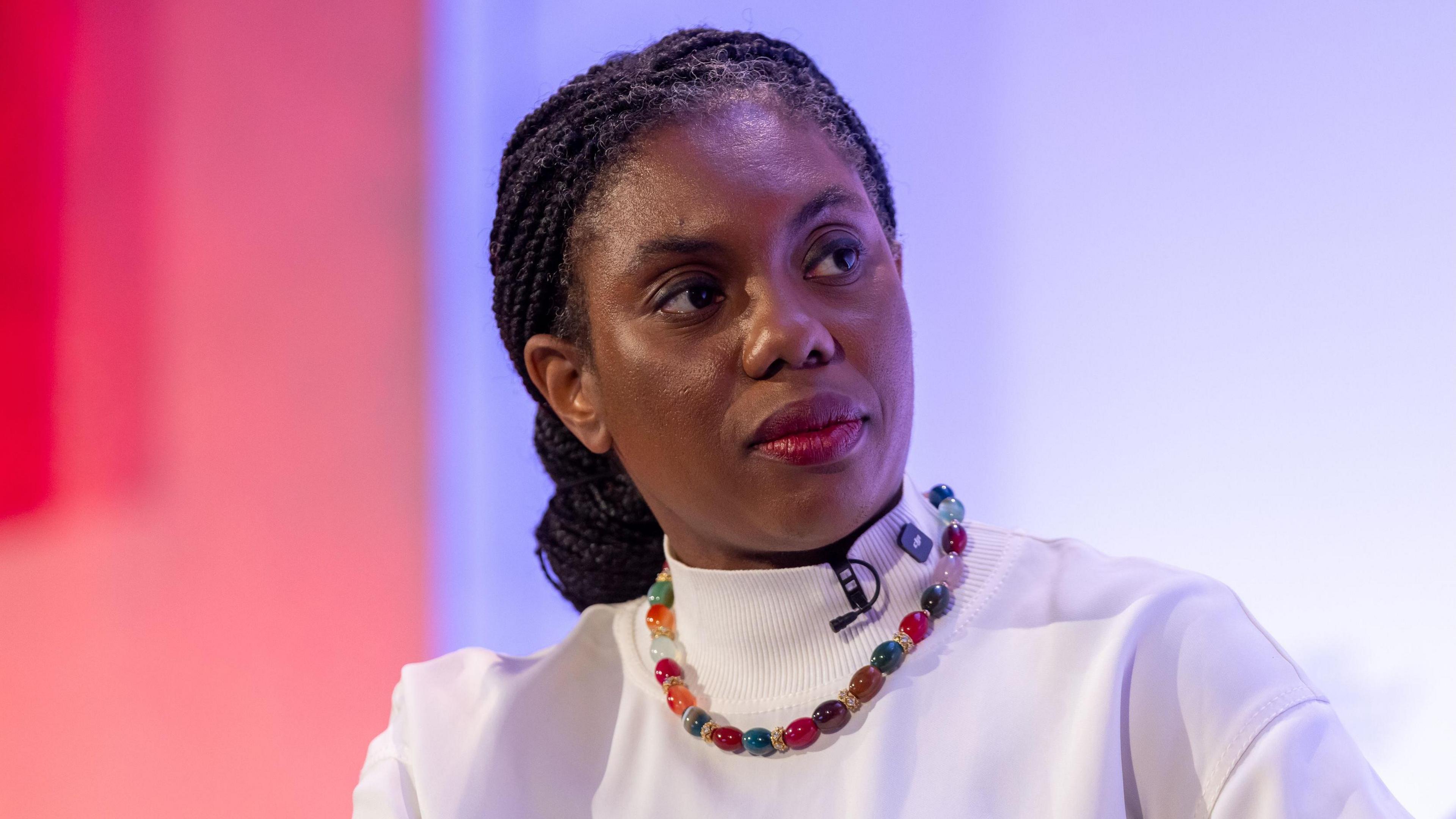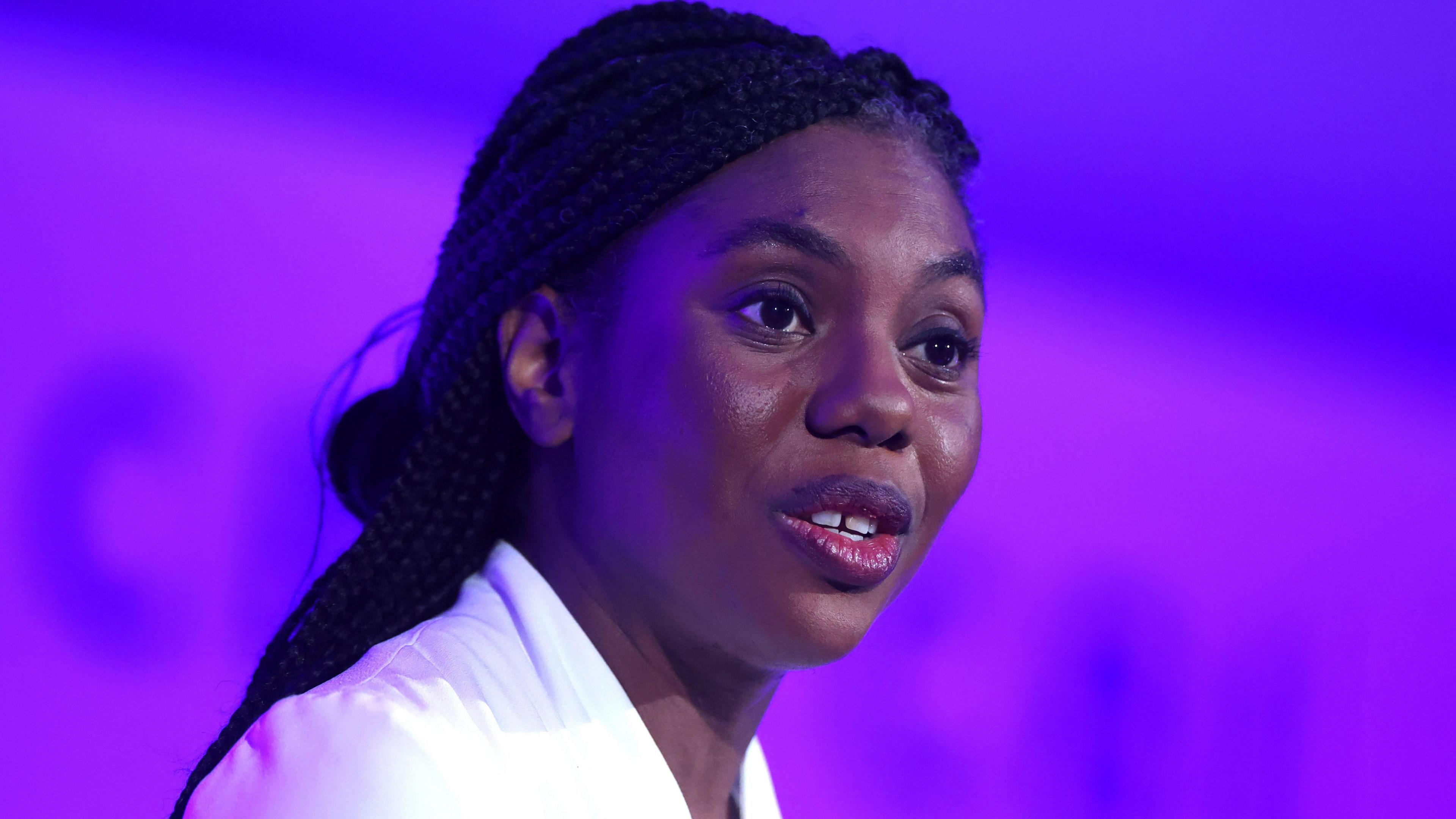I no longer identify as Nigerian, Badenoch says

- Published
Conservative Party leader Kemi Badenoch has said she no longer identifies as Nigerian and has not renewed her passport since the early 2000s.
Badenoch, who was born in the UK, grew up in both Nigeria and the US. She returned to England aged 16 because of Nigeria's worsening political and economic climate, as well as to continue her education.
Speaking on former MP and television presenter Gyles Brandreth's Rosebud podcast, she said she was "Nigerian through ancestry" but "by identity, I'm not really".
Last year, Badenoch faced criticism from Nigeria's vice-president, who said she had "denigrated" the West African country.
Badenoch, who previously lived in Lagos, spoke at length about her upbringing on the podcast, external.
"I know the country very well, I have a lot of family there, and I'm very interested in what happens there," she said. "But home is where my now family is."
On not renewing her passport, she said: "I don't identify with it anymore. Most of my life has been in the UK and I've just never felt the need to."
She added: "I'm Nigerian through ancestry, by birth, despite not being born there because of my parents... but by identity, I'm not really."
Badenoch said that when she had visited the country when her father died, she had to get a visa, which was "a big fandango".
She said her early experiences in Nigeria shaped her political outlook, including "why I don't like socialism".
As a child, "I remember never quite feeling that I belonged there", she went on, adding that she recalled "coming back to the UK in 1996 thinking: this is home".
The Tory leader added the reason she returned to the UK was "a very sad one".
"It was that my parents thought: 'There is no future for you in this country'."
She said she had not experienced racial prejudice in the UK "in any meaningful form", adding: "I knew I was going to a place where I would look different to everybody, and I didn't think that that was odd.
"What I found actually quite interesting was that people didn't treat me differently, and it's why I'm so quick to defend the UK whenever there are accusations of racism."
At the end of last year, Badenoch was criticised for saying she had grown up in fear and insecurity in Nigeria at a time it was plagued by corruption.
The country's vice-president Kashim Shettima responded that his government was "proud" of Badenoch "in spite of her efforts at denigrating her nation of origin". A spokesperson for Badenoch rebuffed the criticism.
Related topics
- Published11 December 2024
